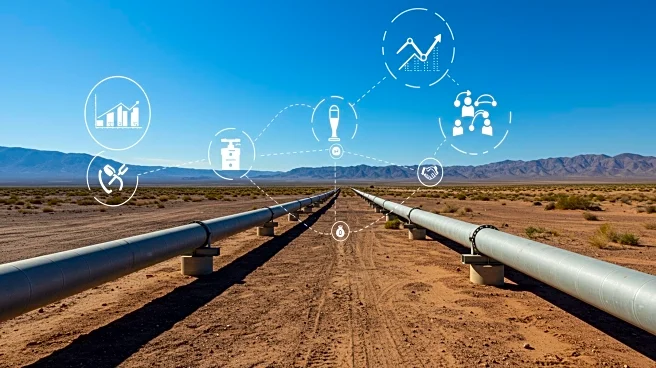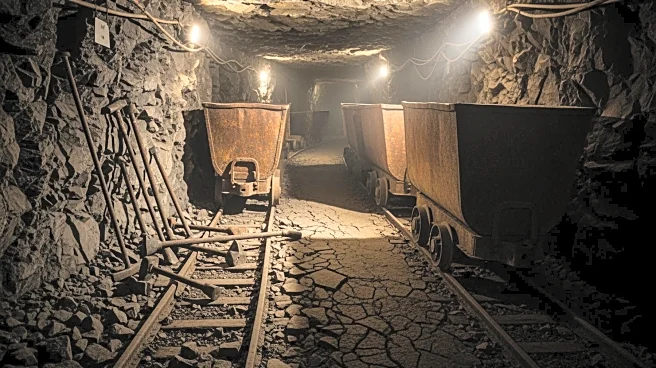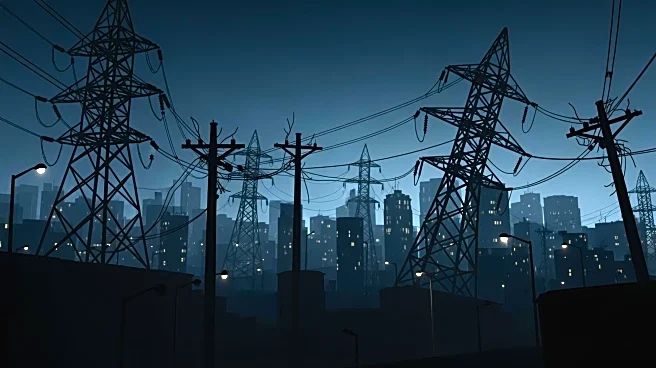What's Happening?
Algeria is on the verge of finalizing a significant agreement with ExxonMobil and Chevron to exploit its extensive gas reserves, including shale, marking a first for the North African nation. According to Samir Bekhti, chairman of the energy regulator Alnaft, the technical aspects of the deal have been largely settled, with commercial terms still under negotiation but expected to conclude soon. This move is part of Algeria's strategy to bolster state revenue, as hydrocarbons constitute over three-quarters of its exports. The country is leveraging its existing gas infrastructure and proximity to Europe to attract foreign investment, despite challenges such as the high costs associated with drilling in the southern desert. Algeria holds the world's third-largest recoverable shale resources, following China and Argentina, and aims to replicate the success of U.S. shale development.
Why It's Important?
The potential deal with ExxonMobil and Chevron is crucial for Algeria as it seeks to enhance its energy sector and increase exports, especially in the wake of Europe's search for alternative gas supplies following the Russian invasion of Ukraine. For the U.S. companies, this represents an opportunity to expand their global footprint in shale gas production, leveraging Algeria's strategic location and existing infrastructure. Successful development of Algeria's shale resources could significantly impact global energy markets, potentially increasing competition and affecting pricing dynamics. However, the venture also faces challenges, including environmental concerns and the need for substantial investment in remote areas.
What's Next?
Algeria plans to continue its efforts to attract foreign investment in its energy sector, with Alnaft aiming to hold its next bidding round for oil and gas blocks by the end of the first quarter of 2026. The country is also working to address economic and environmental concerns related to unconventional energy development. As negotiations with ExxonMobil and Chevron progress, the focus will be on finalizing commercial terms and beginning the process of translating potential into actual production, which could take two to three years for areas near existing infrastructure.
Beyond the Headlines
The development of Algeria's shale resources could have broader implications, including potential shifts in regional energy dynamics and increased geopolitical influence for Algeria. The success of this venture may also encourage other countries with untapped shale resources to pursue similar partnerships, potentially altering the global energy landscape. Additionally, the project could face opposition from local communities concerned about environmental impacts, necessitating careful management of social and ecological issues.








